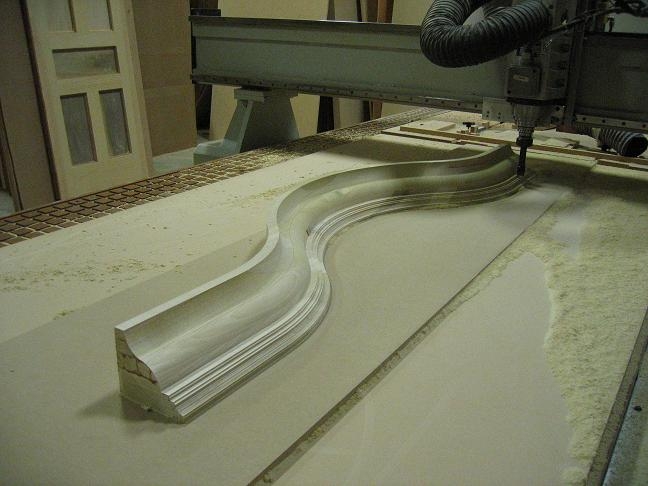Bit Balance and Tool Speed — Routers Versus Shapers
A custom shaping knife for a router has to be carefully balanced, because routers spin faster than shapers. November 19, 2005
Question
I had a custom set of router bits made for a large crown railing, and one of them caused a significant amount of vibration in the router. It was sent out and balanced, and apparently it was a couple of grams out and the shop that made the bit said that was nothing and the problem could be with the router. Does anyone know what the tolerances are for a large router bit?
Forum Responses
(Architectural Woodworking Forum)
From contributor H:
Routers turn anywhere from 21000 rpm and above. What you are doing is trying to use a router for a shaper. This only works on small things. I know there are a lot of books and catalogues out there selling the fact that you can make anything from a simple picture frame to a starship with a router. Shapers turn about 1/3 as fast as routers, so that few grams does not make a major difference.
You are getting "bit whip" and eventually that 1/2" shaft is going to fatigue and break. I would chalk up the cost of that custom made bit to experience and never use it. Discard it or have it re-cut into a smaller profile.
From contributor D:
You could get yourself a router variable-speed controller. It will turn your router down to 500 rpm and up to full blast. Although the previous post is correct, my shaper is far better than using my router for such things. But I have the vari-speed controller for other things like routing round table tops, so when you go against the grain you minimize tear out.
From contributor R:
I balance all my cutters to 1/10 of a gram. For every gram that you’re out of balance, you would be throwing about 20-24 pounds of egg shape pressure on the bearings of a shaper or moulder. It’s like taking a hammer to your bearings. If you continue to use out of balance tooling on a shaper or moulder, you would egg shape your cutterheads as well. Balance is critical.
From contributor F:
I use shapers and a sturdy router table with a large motor for my work. I wouldn't want to live without either one. I have a custom router bit that makes a panel moulding I use and it is the largest bit I use. It runs smoothly and the large router can handle the load. There is a limit to the size of cutter a router can handle and that’s the bottom line.
From the original questioner:
My router is variable speed, and the speed I was running at was 10,000 rpm. I have the shaper cutters to match as well and I’m using the router for small curved parts only.
